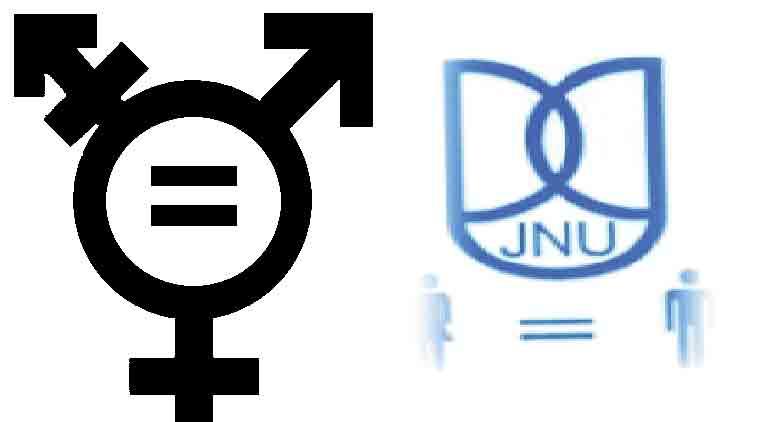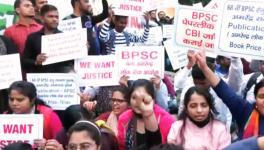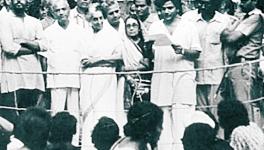Loss of Autonomy Looms Large on JNU's GSCASH

Image Courtesy: Indian Express
A letter by the JNU Registrar addressed to the elected bodies of the students, teachers, officers and staff of the University has asked elections to the Gender Sensitisation Committee Against Sexual Harassment (GSCASH) to be put on hold.
The GSCASH is a key institution which enquires into and redresses cases of sexual harassment and takes up the task of gender sensitisation for members of the University community.
The body has, among others, elected members representing students, teachers, officers and staff.
The Registrar's letter says that the University has decided to constitute an Internal Complaints Committee (ICC), and students and teachers fear that the ICC - which would replace the GSCASH - may not be an autonomous body as the GSCASH has been.
According to the JNU Teachers' Association (JNUTA), the aim of the administration is to reconstitute GSCASH into a body of three nominated faculty members, two nominated non-teaching staff, and three elected student representatives. In other words, elected representatives of teachers, staff and officers would no longer be there. Elections to the posts of student representatives to GSCASH would be held by the administration rather than by the Election Committee elected by students themselves.
The JNU Students Union (JNUSU) condemned what it termed as the "attack on the autonomous character and democratic composition of GSCASH and attempts to replace it with the administration's handpicked 'nominated' members."
The GSCASH in JNU was formed in 1999 after prolonged agitations, over the course of more than two years, by the JNUSU. The demand for an institutional mechanism to redress cases of sexual harassment was bolstered by the Supreme Court ruling on the Vishaka vs State of Rajasthan case, delivered on 13 August 1997. The ruling put the onus on the managements to ensure an environment free of sexual harassment in workplaces.
Following a massive signature campaign by the JNUSU, the JNU Vice-Chancellor appointed a Working Group headed by Prof. Karuna Chanana to study the issue. The Report of the Group said that the SC ruling on workplaces could be interpreted to fit JNU, which the University accepted. The JNU Policy Against Sexual Harassment was adopted on 25 February 1999 and the GSCASH was formed on 8 March 1999.
JNU thus became the first educational institution in India to set up an anti-sexual harassment committee, and the GSCASH became a model for such committees in numerous other institutions.
The legal basis of GSCASH had been provided by the guidelines provided by the Supreme Court in its ruling on the Vishaka case.
The ‘Vishaka guidelines’ were superseded by the Sexual Harassment of Women at Workplace (Prevention, Prohibition and Redressal) Act, 2013. The Act made it mandatory for all workplaces to have Internal Complaints Committees to redress cases of sexual harassment.
In 2015, the University Grants Commission (UGC) issued its own regulations (notified by the Ministry of Human Resource Development on 2 May 2016), making it mandatory for Higher Educational Institutions to have ICCs.
The JNU Registrar’s letter, dated 12 September 2017 and addressed to the Presidents of the JNUSU, JNUTA, JNU Officers’ Association (JNUOA) and JNU Staff Association (JNUSA), says that the University had decided to constitute the ICC after discussing the issue in the last meeting of JNU's Executive Council (EC).
The justification provided by JNU for its decision is that it has to comply with the 2013 law and the 2015 UGC regulations. Another meeting of the EC is to be held on 18 September, which will now take up the matter of adopting the two.
The JNUTA condemned the move of the administration, pointing out that GSCASH is already compliant with the 2013 law and the UGC regulations. The EC of the University had already certified that the GSCASH rules as revised in 2015 were complaint with the 2013 Act when the revised rules were notified on 6 October that year.
All that had to be done was to rename GSCASH as the GSCASH-ICC, "if this pedantic obsession with reproducing the nomenclature" used in the UGC regulations "has to be humoured", said the JNUTA statement, signed by President Ayesha Kidwai and Secretary Pradeep Shinde.
Moreover, as per GSCASH rules approved by the EC, "the JNU Registrar has no locus standi vis-à-vis GSCASH elections (or any other matter pertaining to GSCASH), and his letter countermanding students elections is a shameful case of institutional overreach", said the JNUTA statement.
Former JNUSU General Secretary Satarupa Chakraborty came down hard on the Registrar’s letter. “It is alarming how the JNU administration is trying to dismantle every democratic institutions and policies that JNU has”, she told Newsclick.
The JNUSU has vowed to fight the move of the JNU administration: "Such attempts to throttle the institution of GSCASH and subordinate it to adminsitrative diktats will be robustly rebuffed", said the JNUSU statement signed by Geeta Kumari, Simone Zoya Khan, Duggirala Srikrishna and Shubhanshu Singh, the President, Vice-President, General Secretary and Joint Secretary respectively of the Union.
Get the latest reports & analysis with people's perspective on Protests, movements & deep analytical videos, discussions of the current affairs in your Telegram app. Subscribe to NewsClick's Telegram channel & get Real-Time updates on stories, as they get published on our website.
























